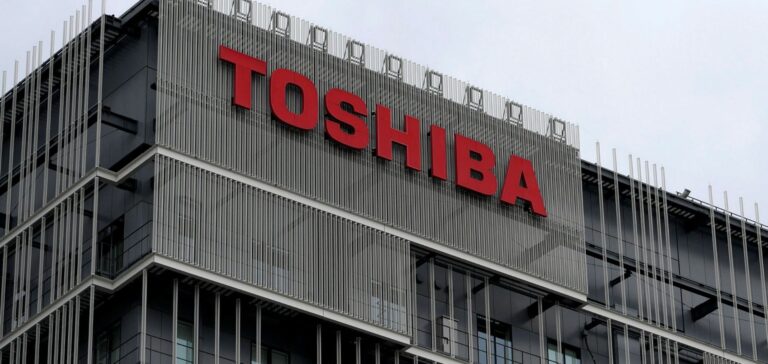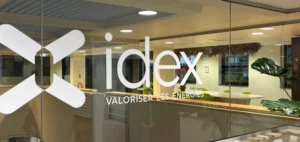The Japanese conglomerate Toshiba, on which a takeover bid by a Japanese consortium is in preparation, has delivered a gloomy forecast for its new fiscal year 2023/24 after a drop in profits in its last fiscal year. Its net profit in 2022/23, ended March 31, plunged 35% to 126.6 billion yen (860 million euros at current prices) and its operating profit fell 30.4% to 110.5 billion yen, according to a statement.
Its profits were notably reduced by exceptional factors (provisions and asset write-downs) in its computer storage (hard disks) and printing systems activities. Its former memory chip subsidiary, now renamed Kioxia, in which Toshiba retains a 40% stake, has also contributed negatively to its results over the last two quarters. Thanks to the diversity of its business segments, its total sales were however almost stable (+0.7%) at 3,361.7 billion yen (22.8 billion euros).
Stagnation of operating profit until 2024
The group expects its operating profit to stagnate in 2023/24, citing rising fixed costs and restructuring costs to ensure future growth. It anticipates annual net profit of 70 billion yen, but this target does not include the future contribution – positive or negative – of Kioxia, whose business it is not involved in managing. Toshiba also expects its annual sales to decline by 4.8% to 3,200 billion yen. In March, the group supported a takeover bid from a consortium of Japanese companies led by the Japan Industrial Partners (JIP) fund, proposing to acquire the conglomerate for 2,000 billion yen (less than 14 billion euros). This amount was considered unattractive by analysts.
However, given its lackluster performance and earnings outlook, Toshiba and its shareholders probably don’t have much room for improvement. This takeover bid should be launched at the end of July at the earliest, Toshiba repeated on Friday. A former Japanese industrial and technological flagship with a century-long history, Toshiba has lost much of its luster since a massive accounting makeup scandal emerged in 2015 and serious financial difficulties thereafter. The group has slowly recovered, but is much smaller than before, having had to divest many assets to survive. And he is now also very much influenced by activist shareholders, who have long been pushing for a buyout scenario.






















